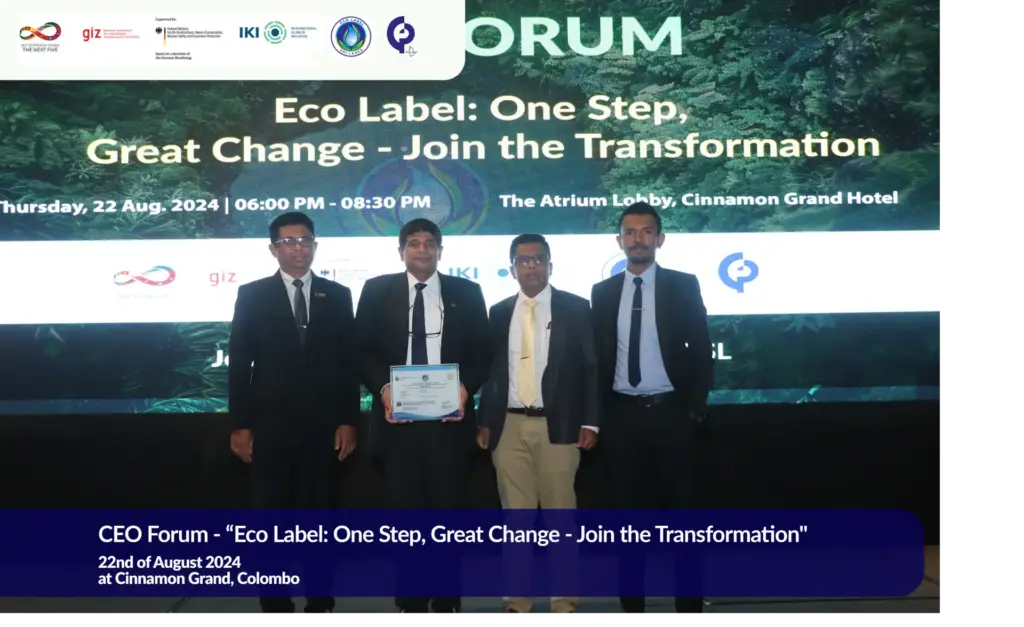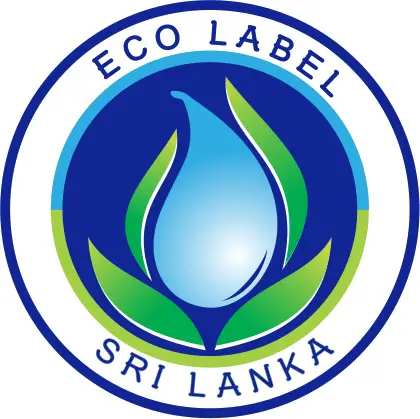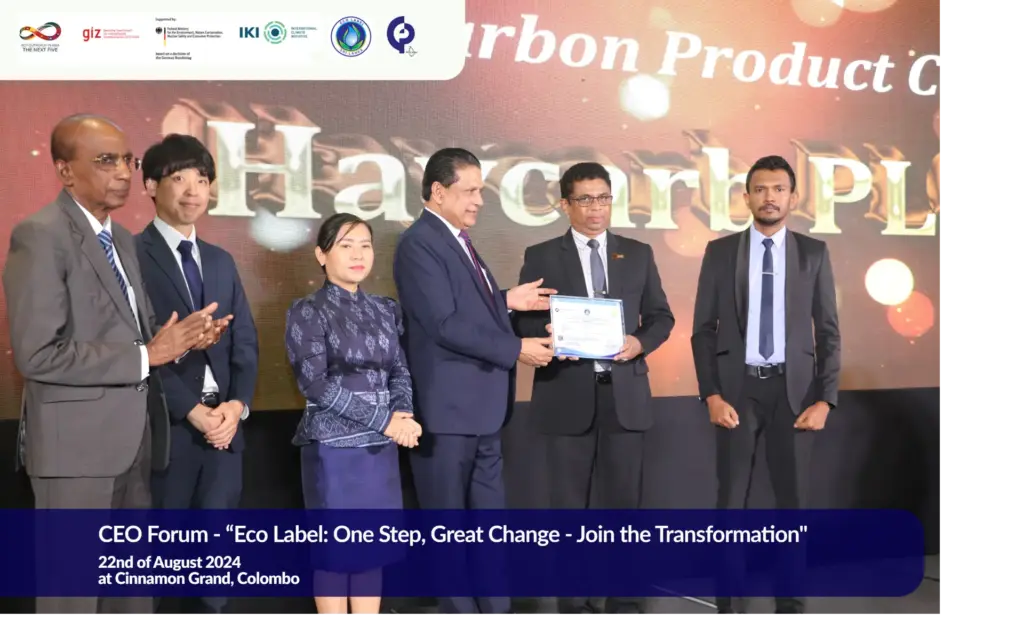
Haycarb’s sustainability efforts were formally recognized last year when we became the first activated carbon manufacturer in Sri Lanka to achieve Eco Label certification.
Our coconut shell–based steamed activated carbon is now officially Eco Label certified by the National Cleaner Production Centre – Sri Lanka (NCPC-SL). This recognition marks more than just an achievement; it reflects years of innovation, research, and a deeply rooted commitment to responsible manufacturing and environmental stewardship.
What Eco-Labeling Really Means

Eco-labeling is one of the most trusted ways to verify that a product has been made with minimal environmental impact, from its raw material sourcing to its final use and disposal. Unlike self-declared claims such as “eco-friendly” or “green,” this certification is awarded only after independent, evidence-based assessment.
Products must meet strict performance benchmarks under ISO 14024:2018 Type I Environmental Labeling standards, which evaluate the entire product life cycle:
- Responsible raw material sourcing
- Energy and water consumption
- Emissions and waste management
- Product safety and environmental performance
Achieving Eco Label certification signifies that Haycarb has not only met these benchmarks but has done so on a scale that sets a precedent for activated charcoal manufacturing.
A Global Network of Trust

The Eco Label movement is part of a worldwide effort to bring transparency and trust to sustainability claims. The concept began in 1978 with Germany’s Blue Angel, the world’s first environmental label, and has since expanded through programs like the Nordic Swan in Scandinavia, the EU Ecolabel, and Japan’s Eco Mark.
Today, eco-labeling is coordinated by the Global Ecolabelling Network (ISO 14024:2018 Type I Environmental Labeling standards, a coalition of over 50 countries that ensures alignment across borders. This network means that a certification earned in Sri Lanka carries global credibility, helping local companies compete in export-driven industries where environmental performance is no longer optional but expected.
Sri Lanka’s Eco Label, managed by NCPC-SL, is internationally recognized under GEN. By aligning with ISO 14024 standards, it ensures that Sri Lankan manufacturers like Haycarb can meet the same rigorous sustainability requirements as their counterparts in Europe, North America, and Asia-Pacific markets.
Why Eco-Labeling Matters for Sri Lanka’s Future
Eco-labeling is more than a certification; it’s a framework that drives measurable improvements across industries. For Haycarb, pursuing certification meant looking critically at every aspect of our operations: strengthening partnerships with coconut shell suppliers for a sustainable raw material supply, enhancing kiln efficiency, implementing waste heat recovery, and reducing emissions through innovative production methods.
On a national scale, the growing adoption of eco-labeling pushes Sri Lankan industries to embrace cleaner production methods, creating a ripple effect:
- Environmental Impact: Lower emissions, reduced waste, and conservation of natural resources.
- Business Competitiveness: Stronger positioning in global markets where eco-labeled products are increasingly a baseline requirement.
- Consumer Trust: Verified sustainability credentials that meet rising global expectations for transparency.
- Policy Support: Alignment with Sri Lanka’s climate action strategies and sustainable economic development goals.
Haycarb’s Leadership in Sustainable Manufacturing
Haycarb’s pursuit of the Eco Label reflects a philosophy of innovation deeply embedded in our operations. As a company specializing in coconut shell–based activated carbon, we have long embraced circular economy principles, turning agricultural waste into high-value products for industries worldwide.
Key initiatives on this journey include:
- Energy Recovery: Pioneering waste heat recovery systems to reduce fuel consumption.
- Renewable Sourcing: Working closely with coconut suppliers to ensure sustainable raw material supply chains.
- Process Innovation: Patented charcoaling and activation processes that cut emissions while enhancing efficiency.
- Community Engagement: Collaborating with rural communities, strengthening livelihoods while promoting sustainable practices.
The Eco Label certification is not just a local milestone; it reflects Haycarb’s broader vision of proving that manufacturers from Sri Lanka and across our global operations can meet and exceed internationally recognized standards of environmental excellence.
Looking Ahead: A New Benchmark for Industry
For Haycarb, achieving Eco Label certification is not a final step but a foundation for greater ambitions. While this recognition applies to our Sri Lankan operations, it reflects the high standards we maintain across all our facilities and reinforces our commitment to setting industry benchmarks in sustainability and innovation.
We see this milestone as a catalyst to:
- Advance sustainability performance across all operations through data-driven innovation and transparent practices.
- Champion credible certifications across every region where we operate, encouraging industries worldwide to embrace measurable environmental stewardship.
- Demonstrate that responsible manufacturing and global competitiveness go hand in hand, setting an example for peers across sectors.
Each eco-labeled product represents a step toward this vision. As more companies join this movement, the collective impact will extend far beyond industry benchmarks, shaping a future where responsible production creates lasting value for businesses, strengthens communities, and safeguards the environment.






